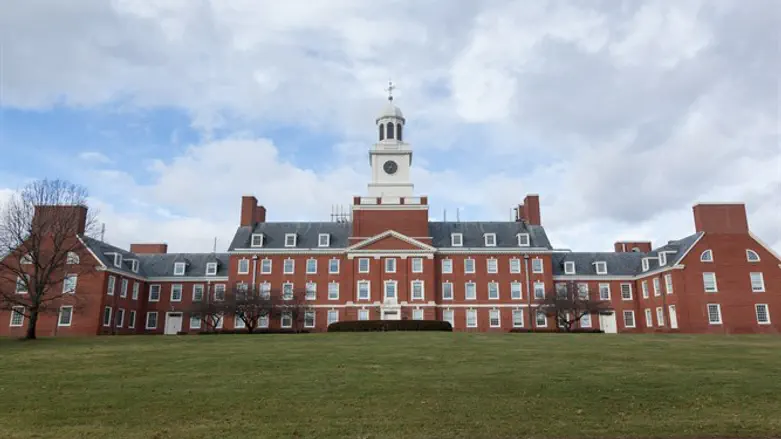
Rutgers University has long been criticized by Jewish groups for not doing enough to tackle campus anti-Semitism.
The issue came to a head in May of this year when Rutgers Chancellor Christopher J. Molloy caved into pressure from a campus pro-Palestinian group and issued an apology for an earlier letter which denounced anti-Semitism.
Further incidents continued to occur during the spring and summer at the New Brunswick, New Jersey university
In July, Rutgers University Hillel slammed a statement from pro-Palestinian groups that called for defunding Jewish organizations on campus.
In August, an organization representing Rutgers alumni from across the United States denounced a recent anti-Israel statement by the campus chapter of Students for Justice in Palestine (SJP) and Rutgers Mutual Aid, a group made up of students and alumni.
The statement referred to the Jewish State as “apartheid Israel,” claimed Zionism was one of the “real threats to Jewish safety today,” and also alleged that Zionism “purposely ties all Jews to the Israeli regime and, by extension, its crimes.”
In order to forge a path ahead where Jewish students would feel safe and welcome on campus, Jason Shames, CEO of the Jewish Federation of Northern New Jersey, met with Rutgers President Jonathan Holloway at the beginning of June.
Shames recalled the conversation as being “positive.”
On Facebook, the Jewish Federation of Northern New Jersey wrote: “Yesterday, the Jewish Federations of New Jersey met with Rutgers University President Holloway. We appreciate the opportunity to engage in meaningful dialogue and we look forward to working with President Holloway, his team, and our campus partners to ensure Rutgers remains a safe and welcoming environment that fosters vibrant Jewish life.”
However, with the passage of several months, Shames changed his mind. He was especially concerned about a September 11 program that Rutgers held, that included the US Campaign for Palestinian Rights and Jewish Voice for Peace chapters in New York City and the Bay Area, entitled “Whose Narrative? 20 Years Since 9/11/2001.”
The program “reignites my concern for the safety and wellbeing of Jewish lives on campus and elsewhere. As you are aware, several of the panelists featured have direct links to organizations designated by the United States as foreign terrorist organizations like the Palestinian Islamic Jihad (PIJ). According to the esteemed Council on Foreign Relations, PIJ actively advocates the destruction of Israel through violent means; it approaches the Arab Israeli conflict as an ideological war, not a territorial dispute. PIJ members see violence as the only way to remove Israel from the Middle East and reject any two-state arrangement in which Israel and Palestine coexist,” Shames said in a written statement sent to Holloway, the Jewish Standard reported.
Shames added that the panel appeared to have been “co-opted by those who seek to delegitimize Israel and to push their anti-Semitic agenda into a mainstream discourse.”
He stated that he felt “extreme disappointment and dissatisfaction” with Rutgers for allowing the program to go ahead.
“As a Jewish leader, I must share with you my extreme concern about how including this program in your curriculum further fuels anti-Semitic behavior and tropes,” he said. “As a tax paying resident in New Jersey, and as an American, I must share with you my deep loss of faith in how the university allowed a solemn day like 9/11 get hijacked to advance a pathologically destructive narrative.”
